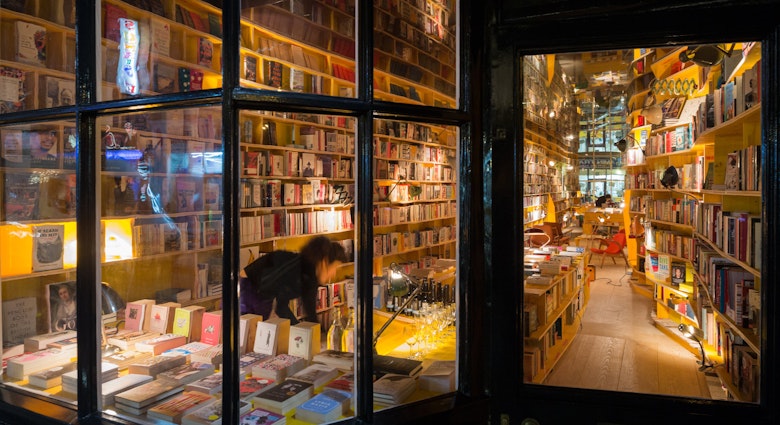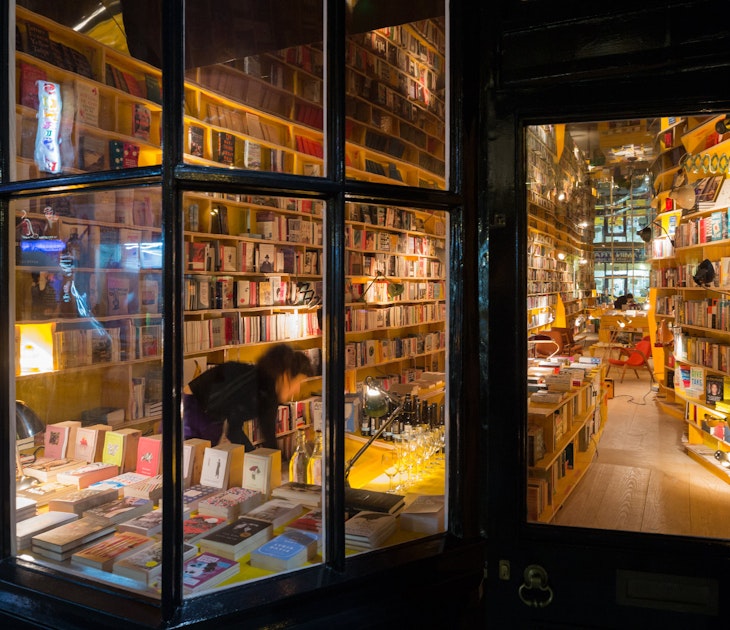
Four travel memoirs that tackle big issues everyone is dealing with right now
Mar 30, 2020 • 6 min read

While reading and travel might appear to be rather different pastimes – one typically solitary and in place, the other a chance to meet new people far from home – they can evoke many of the same feelings.
Remember reading as a child and discovering for the first time how you might drift outside yourself and into another time and place? On the page as on a trip, you can meet strangers who soon became familiar, and even might feel almost indistinguishable from yourself. Both are an opportunity to see the world through the eyes of another "I" and connect in unexpected ways.

It should come as no surprise, then, that during the COVID-19 pandemic, while we’re practicing social distancing, staying home, or self-quarantining, book sales are way up – as much as 33% in some countries. Books are offering everyone a chance to roam from home, and like your last vacation draw you out of your mundane, predictable routines into imaginative, unpredictable adventures. Reading is a chance to shift our linguistic orientation: rather than thinking of this as staying put, let’s call it settling in.
All it takes is a little bit of good prose to hitch a ride on someone else’s wagon, plane and bicycle, or walk a mile in another’s shoes (or 800 miles along the El Camino de Santiago). Here are a few suggestions of beloved travel memoirs that will carry you to far away places and perhaps inspire future journeys, even as they help you go the distance and settle in to your favorite reading nook at home.
Our writers independently select the best products to help you have amazing travel experiences. If you purchase through links on our site, Lonely Planet may earn a commission from the retailer.
Solitary wanderlust
The Longest Way Home: One Man’s Quest for the Courage to Settle Down by Andrew McCarthy.
A memoir that simultaneously honors solitary wanderlust while also asking us to hold fast to our commitments to each other is Andrew McCarthy's The Longest Way Home. McCarthy recounts his yearlong solo pilgrimage around the world – visiting Spain, Patagonia, the Amazon, Costa Rica, Vienna, Baltimore, Kilimanjaro and Dublin – as well as his migration from vagabond to once-again married man. He writes:
“There's something in the act of setting out that renews me, that fills me with a feeling of possibility. On the road, I'm forced to rely on instinct and intuition, on the kindness of strangers, in ways that illuminate who I am, ways that shed light on my motivations, my fears.”
Fear. Isn’t that what we are also contending with sheltering at home? Can we set aside our fears as we turn these pages?
You may also like: Best books to get you dreaming of European travel
Facing your fears
West with the Night by Beryl Markham
Speaking (or writing) of fear, you might turn to West with the Night, by Beryl Markham. Markham writes about her own fears as she recounts her childhood in Kenya, her later work training racehorses, and, most thrillingly, about her aviation feats – most notably when she accepted a challenge to complete the first solo east-to-west flight across the Atlantic from England in 1936. She set off from England, flew for more than 21 hours, and survived a crash-landing on an island near Nova Scotia. Of her own wanderlust and necessary connection to others, she says:
“A map in the hands of a pilot is a testimony of a man’s faith in other men; it is a symbol of confidence and trust. It is not like a printed page that bears mere words, ambiguous and artful, and whose most believing reader – even whose author, perhaps– must allow in his mind a recess of doubt. A map says to you, ‘Read me carefully, follow me closely, doubt me not.’ It says, ‘I am the earth in the palm of your hand. Without me, you are alone and lost.’”
Staying present in ordinary moments
The Snow Leopard by Peter Matthiessen
If we can locate ourselves on map, we might be able to anchor ourselves to our purpose-in-place, as revealed in Peter Matthiessen's The Snow Leopard. This 1973 memoir chronicles Matthiessen’s trek into the Dolpo region of the Himalayas with zoologist George Schaller. Schaller’s aim was the study of Himalayan blue sheep, while Matthiessen’s was a sustained glimpse of the elusive snow leopard. At the time of his journey, only two Westerners over the previous twenty-five years had ever seen the snow leopard in the wild.
As a practicing Zen Buddhist, Matthiessen’s journey is both scientific and spiritual in nature, making him doubly present in the moment. While trekking along a high ridge, he writes:
“My foot slips on a narrow ledge; in that split second, as needles of fear pierce heart and temples, eternity intersects with present time. Thought and action are not different, and stone, air, ice, sun, fear, and self are one. What is exhilarating is to extend this acute awareness into ordinary moments, in the moment-by-moment experiencing of the lammergeier [a type of vulture] and the wolf, which, finding themselves at the center of things, have no need for any secret of true being.”
You may also like: Travel the US without leaving home with these top 50 books for each state
Traveling at home
Pilgrim at Tinker Creek by Annie Dillard
Isn’t this moment in time asking us not only to stay home and take shelter, but to be attentive to our here and now? Annie Dillard offers us, in Pilgrim at Tinker Creek, just such a homebody travel itinerary. The memoir’s plot follows seasonal time across a year: Dillard stays in place while the world shifts and changes and moves around her. She chronicles her close-to-home explorations along Tinker Creek in Virginia's Blue Ridge Mountain:
“I am a frayed and nibbled survivor in a fallen world, and I am getting along. I am aging and eaten and have done my share of eating too. I am not washed and beautiful, in control of a shining world in which everything fits, but instead am wandering awed about on a splintered wreck I’ve come to care for, whose gnawed trees breathe a delicate air, whose bloodied and scarred creatures are my dearest companions, and whose beauty beats and shines not in its imperfections but overwhelmingly in spite of them, under the wind-rent clouds, upstream and down.”
We, too, are frayed and nibbled survivors charged with the care for this splintered wreck, for each other and our home places. We, too, are afraid, anxious, angry and suffering. We, too, take note of rising infection rates and mortality rates. We, too, understand what Dillard also understands, that even in "inexplicable moments" we exist, we are present.
Isn’t this pandemic, too, an inexplicable moment? And yet, whether we are moving across the world or staying put, we are still of the world, still here. Dillard asks us to imagine a revolving globe on a stand, a globe that could show all contour and texture, all roads and houses, all trees and birds in the trees, all that we care about outside ourselves and inside ourselves, all that escapes our singular notice and that is also contained within our singular centers.
How long will we need to settle in before it is safe to venture out? We don’t yet know for certain, though what we do know is there is no certainty to any journey. As travelers, we’ve learned to live with uncertainty – weather, delays, detours, and disappointment – and yet, haven’t we also learned how to adapt and imagine other ways forward and through. And how to take flight and return home?
Explore related stories




 ArchitectureVisiting the Taj Mahal: plan the perfect trip to India's iconic monument
ArchitectureVisiting the Taj Mahal: plan the perfect trip to India's iconic monumentNov 27, 2024 • 12 min read
 Destination PracticalitiesHow to get your cell phone connected in Thailand: eSIMs, wi-fi and mobile networks
Destination PracticalitiesHow to get your cell phone connected in Thailand: eSIMs, wi-fi and mobile networksNov 27, 2024 • 8 min read




